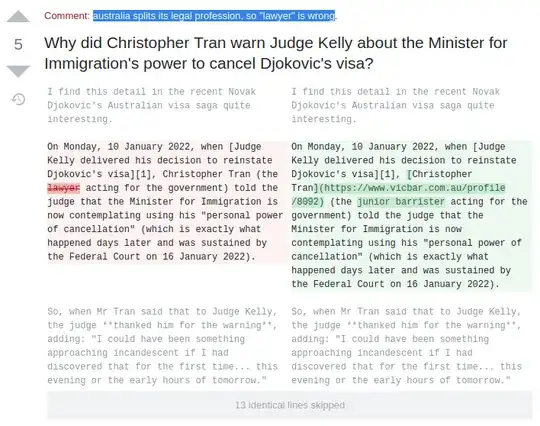In many Common Law nations, the distinction between solicitor and barrister is that the solicitors traditionally have direct access to clients and do much of the paperwork and discuss the planning with the clients. In some jurisdictions it was/is common practice that the barrister is not hired by the client but appointed by the judge. The barrister in turn works with the solicitor and presents the case in the court and has little to no access to the client.
Historically, the division was much more stark, with solicitors working in the Court of Equity and barristers working in the Court of Common Law. Around the mid-1800s, the Court of Equity became defunct in the Common Law Legal system with the Court of Common Law fulfilling its duties and many Common Law nations changing how the split among lawyers now functions (often requiring separate tests to be a solicitor and a barrister).
The split remains in England, Wales, Scotland, three states in Australia (New South Wales, Queensland, and Victoria), Ireland (both the Republic and Northern Ireland), and Hong Kong. In these jurisdictions, a lawyer will hold only one title. In jurisdictions where lawyers may, or even are expected to, hold both titles, the system is called a “fused system”. Here, lawyers start their careers as one of the two and pick up the license to act in the other capacity later if they choose. This covers the jurisdictions of Canada, Malaysia, Singapore, New Zealand, and the remaining Australian states. (Because Australia has a mix of fused and separated systems and state reciprocation, the three states with a separated system will reciprocate for states that allow for fusion. The reverse is not necessary, as fused states would only allow them for the license they already have.)
The United States is fully fused and all lawyers are solicitor-barristers, for comparison’s sake. This is why the U.S. uses “attorney” and “lawyer” interchangeably despite the former being another term for barrister in certain jurisdictions (namely Scotland) while the latter term refers to solicitors and barristers collectively. The U.S. did previously have a separate system, but completely fused when Courts of Equity disappeared in the 1850s and, therefore, the term “solicitor” is still used in the legal profession, though these days it tends to be an artefact title for an office or position that predated the fusion (e.g., The Solicitor General of the United States a.k.a. the lawyer whose office represents the federal government in the Supreme Court). Modern usage of “solicitor” tends to refer to a government lawyer, and most of the states with Solicitor offices are one of the Original 13 States (not all of them, though). Only three states that were not part of the original 13 use the term (Ohio, West Virginia (likely a hold over from when it was part of Virginia, which no longer uses the term), and Oklahoma). It should be noted the average U.S. Citizens associate the word solicitor with traveling salesman or door-to-door evangelizers, and generally use the term in signage forbidding the practice on private property.
